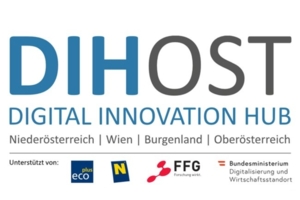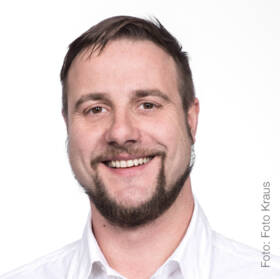Developing an app that helps to reduce impurities in waste bins.
Background
Members of the Lower Austrian Association of Municipalities for Environmental Protection (GVU), namely the municipalities of Scheibbs and Melk, are aiming for a reduction of contaminants and incorrect discards in organic waste. Together with the DIHOST partner FH St. Pölten, new ways are being explored to motivate and guide citizens to better waste separation. Therefore, the use of digital technologies and/or mobile applications (e.g. a mobile phone app) is being tested and a concept is being developed to optimise the processes and the interaction between the most important stakeholders (mill producers/citizens, waste pickers, waste transporters, compost and biogas associations, “GVU”s).
Project content and objectives
The overall objective of the project is to develop a smartphone app, helping the employees of the waste collection (waste pickers) to collect data on incorrect discarded waste in organic waste bins as easily as possible, without hindering them in their work. This data includes photographs or measurements and should enable the “GVU” to give the owners of those bins targeted information and explanations, to offer further training or – as a last resort – impose penalties on them. The entire project is divided into three parts. In part one, the app is designed and developed in its basic features. In the second part, it is tested in a pilot study to ensure suitability for everyday use. User feedback serves as a basis to tailor the app to the needs of future users. In the third part, the app is develop further and — under the name "DOKI” — configured for further use cases. "DOKI" will be presented in workshops in which further ideas will be developed together with SMEs. Also, it will be prepared for exploitation by commercial providers via app shops.
Method
The criteria that are important for the employees but also for the other stakeholders (“GVU”, transport companies, exploiters) are determined in joint workshops (design thinking / data user tasks analysis). In the first development step, it is determined whether the existing markings, sensors and measuring devices in the bins and in the collection vehicles/systems can be made usable for a smartphone app (e.g. number code on bins, GPS signal on smartphone, recognition of NFC chips in the bins when they are emptied, etc.). In several test phases, the smartphone app will be tested for its practical suitability and adapted to the daily working routine of the employees. The goal is to enable permanent use without hindering the usual work processes. To achieve this, training sessions are held with the employees plus their working conditions are examined in detail. For example, the working areas on the trucks are very dirty and the daily work of the waste collectors is characterised by different outdoor conditions (darkness, rain, cold). This is taken into account during the development of the app.
Result
Reducing the number of wrongly thrown rubbish and other impurities in the waste bins is a way to optimise the waste disposal processes. To reach this goal, it is necessary to start at the beginning of the waste disposal chain. The smartphone app developed in cooperation with the University of Applied Sciences St.Pölten is intended to help collect data on which households are "careless" in separating waste and to take steps to encourage them to take more care. This reduces the administrative effort for the “GVU” and the waste management companies, as the reports on misdirected waste are collected in a database and do not have to be collected via other channels (e-mail, SMS services, etc.). In addition, the app helps to increase the compostability of organic waste and to save costs.
You want to know more? Feel free to ask!
Digital Technologies Research Group
Institute of Creative\Media/Technologies
Researcher
Digital Technologies Research Group
Institute of Creative\Media/Technologies
Department of Media and Digital Technologies
David Schwarz
Bichler Bernhard
Alexandra Pronay
- NÖ Gemeindeverband für Umweltschutz Melk und Scheibbs
- Kerschner Umweltservice und Logistik GmbH
- AWÖ Entsorgungs-GmbH


